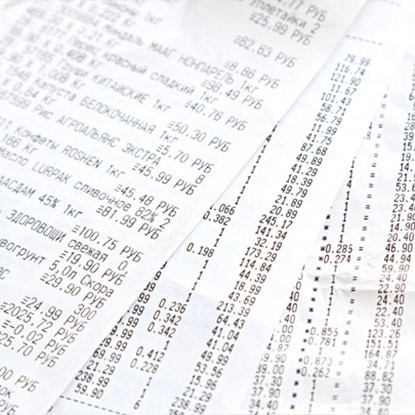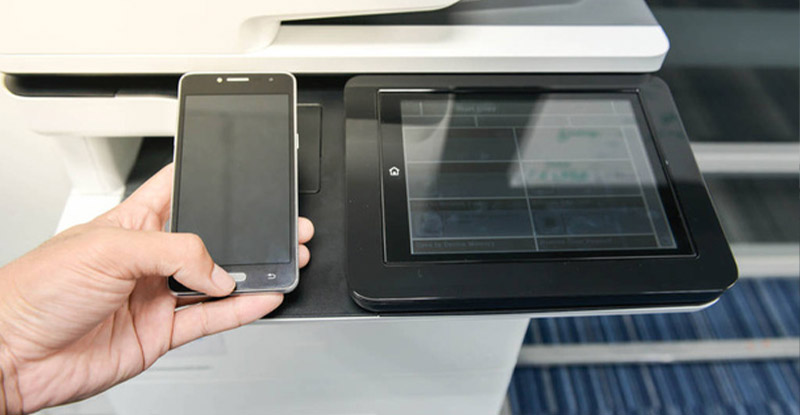Receipts:
From Clutter to Control – Simplify Your Life with Smart Business Receipt Management


Receipts don't have to be a hassle. Explore our blog for valuable insights into receipt management, from going paperless with digital solutions to mastering the art of organization. Stay ahead of the game with our receipt management tips and tricks.
In the realm of business operations, where every expense, transaction, and financial decision carries weight, the importance of effective receipt management cannot be overstated. Receipts, those seemingly mundane slips of paper or digital records, hold a wealth of critical information.
For every business, receipts provide a tangible record of financial transactions, offer a trail of evidence for tax compliance, and serve as a foundation for sound expense management. Let’s discuss receipt management, unraveling the key reasons why mastering this art is essential for businesses of all sizes.

Experience the convenience and efficiency of Artsyl InvoiceAction. Avoid receipt and invoice mismatch with automated data entry and zero paper clutter. Try Artsyl today for a seamless and paperless receipt management experience.
Businesses face several challenges when it comes to managing receipts effectively. These challenges can impact organizational efficiency, financial compliance, and overall productivity. Here are some common challenges businesses encounter with receipts:
Businesses often generate a significant number of receipts daily, especially those with frequent transactions. Managing this volume manually can be time-consuming and error-prone. Physical receipts require physical storage space, and retrieving specific receipts can be cumbersome. Digital receipts also need proper digital storage and organization.
Keeping receipts organized and easily accessible can be challenging. Without a proper system in place, receipts can get lost or misplaced, leading to difficulties in tracking expenses.
Over time, paper receipts can fade, become illegible, or get damaged, making it challenging to verify transactions. This can result in inaccuracies and compliance issues.
RELATED: Invoice vs. Receipt: What’s the Difference
Employees may forget to collect receipts, or receipts may go missing during the submission process. This can lead to incomplete records and difficulties in expense reporting.
Proper record-keeping is crucial for tax compliance. Without organized receipts, businesses may struggle to provide accurate information for tax deductions and audits.

Manually entering receipt data into accounting or expense management software is not only time-consuming but also prone to errors. It can result in discrepancies and reconciliation issues.
Delayed or inefficient expense reimbursement processes can lead to employee dissatisfaction and affect morale. Quick and accurate reimbursement is essential.
In the case of audits or financial reviews, businesses must be able to provide organized and accurate receipt records. Failure to do so can result in penalties.
To address these challenges, businesses are increasingly turning to digital solutions and automated receipt management tools. These solutions can streamline the receipt collection, storage, and reporting processes, reducing errors and improving overall efficiency.
Streamline your business operations with Artsyl OrderAction. From automating receipt capture to organizing and categorizing expenses, OrderAction enhances efficiency and accuracy. Empower your team to focus on what truly matters – growing your business.
Book a demo now
Efficient receipt management is more than just paperwork; it’s a critical aspect of financial responsibility. Here’s why keeping and organizing receipts matters:
Proper receipt management is not only good practice, it can also have legal and financial implications:
Understanding these basics of receipt management sets the stage for efficient financial record-keeping and compliance with legal and financial obligations. In the following sections, we will explore practical tips and strategies for mastering the art of receipt management.
Don’t miss out on valuable tax deductions. Artsyl docAlpha simplifies receipt tracking, ensuring you capture every deductible expense effortlessly. Take control of your finances and optimize your tax savings with Artsyl docAlpha.
Book a demo now
One of the common issues with receipts is having to deal with damaged or unreadable receipts. To address faded or damaged paper receipts, consider making high-quality scans or photos of them as soon as possible.
The reason for that is digital copies can preserve the information even if the physical receipt deteriorates. Additionally, storing digital receipts in a secure and accessible location prevents further damage. Here’s a brief overview of more ways to overcome common receipt management challenges.
Decide whether to collect receipts in digital or physical formats based on your preference and convenience. Digital receipts are becoming increasingly popular due to their ease of storage and organization.
However, some transactions still generate paper receipts, so having a strategy for both formats can be beneficial.
RELATED: Expense Report: Best Practices to Get It Right
Establish a dedicated and organized location, either physical or digital, where you’ll store all your receipts. This centralized repository makes it easy to access and manage your receipts when needed, ensuring nothing gets lost in the shuffle.
Promptly collect and save receipts as soon as transactions occur. Waiting too long can lead to misplaced or forgotten receipts, making it challenging to maintain accurate records and meet tax deadlines. Timeliness is key to effective receipt management.
When you’ve lost or misplaced a receipt, try to obtain a duplicate if possible. Some vendors may provide duplicates upon request. If not, create a clear record of the transaction, including the date, vendor, and amount, to the best of your ability. Always make an effort to collect and store receipts promptly to minimize the risk of loss.
When dealing with a large volume of receipts, consider implementing digital receipt management tools and software. These tools can automate receipt capture, categorization, and organization.
Regularly set aside time for receipt review and categorization to prevent an overwhelming backlog. While doing this, prioritize high-value or tax-related receipts for immediate attention, and establish a routine to manage the volume effectively.
Ensure compliance with ease. Artsyl receipt management solutions provide airtight records, making audits a breeze. Take the stress out of compliance and stay audit-ready at all times with Artsyl InvoiceAction.
Book a demo now
As you can see, mastering the art of receipt management is crucial for maintaining financial order, ensuring tax compliance, and streamlining expense tracking. Here are some practical tips and strategies to help you become a receipt management pro.
Whenever possible, opt for digital receipts. Many businesses offer email receipts or e-receipts that can be easily stored and organized electronically.
Use mobile apps that allow you to scan paper receipts and save them as digital files. There are numerous receipt scanning apps available for smartphones.
Establish a centralized location, whether physical or digital, to store all your receipts. This could be a dedicated folder on your computer or a physical file organizer.
Organize receipts by categories, such as business expenses, personal expenses, or by the type of transaction (e.g., groceries, utilities).
Develop a consistent naming convention for your digital receipt files. For example, «Date_Vendor_Description» (e.g., «2023-01-15_Amazon_Office Supplies»).
Use descriptive labels or tags to easily categorize receipts, making it simpler to retrieve them later.
Set aside dedicated time for receipt management, whether it’s weekly, monthly, or as each receipt is received. Consistency is key. Also, review and categorize each receipt, ensuring they are accurately labeled and organized.
Explore receipt management apps and software, which can automate many aspects of the process. These tools often provide features like expense tracking, receipt capture, and reporting.
RELATED: 10 Benefits of Invoice Scanning Software That Accountants Will Love

Regularly back up your digital receipt files to prevent data loss. Use cloud storage services like Dropbox, Google Drive, or dedicated receipt management apps. Ensure that your backups are secure and accessible in case of device failure.
For tax-related receipts, clearly label them as such and note the potential tax deduction category. This will simplify the process when it’s time to file your taxes. Consult with a tax professional to ensure you’re capturing all eligible deductions.
Once you’ve organized and digitized your receipts, consider shredding or securely disposing of paper receipts that are no longer needed. Be mindful of any legal or compliance requirements for retaining certain receipts.
If you have a business, consider using a separate credit or debit card for business-related expenses. This can make it easier to track and separate business receipts from personal ones.
If you’re managing receipts for a business or have complex financial situations, consult with an accountant or financial advisor. They can provide expert advice on best practices and compliance.
Tax laws and regulations change, so stay updated on any changes that may impact your receipt management and deductions.
By implementing these practical tips and strategies, you’ll be well on your way to mastering receipt management. Efficient and organized receipt management not only simplifies financial record-keeping but also ensures that you’re prepared for tax time and financial audits.
Say goodbye to the headache of order management. OrderAction solution simplifies the process, allowing your team to organize order receipts effortlessly. Transform your financial reporting into a hassle-free, efficient, and error-free task.
Book a demo now
Receipts are written or digital records that acknowledge the exchange of goods, services, or money between two parties. They serve as tangible evidence of a transaction and typically include key details such as:
Receipt management tools and software offer a multitude of benefits for individuals and businesses alike. These digital solutions streamline the often tedious process of collecting, organizing, and tracking receipts.
With features like receipt scanning, automatic data extraction, and categorization, they reduce the risk of errors and save valuable time. Furthermore, these tools provide a centralized repository for all receipts, making retrieval and auditing effortless.
With receipt management software, prepare to enhancing financial transparency, enabling real-time expense tracking, and facilitating compliance with tax regulations. Additionally, by going paperless with digital receipts, businesses can contribute to sustainability efforts by reducing their environmental footprint.
In a world where efficiency and accuracy are paramount, receipt management tools and software are invaluable assets for maintaining order in financial record-keeping.
Embrace the future of receipt management with docAlpha. Digital receipts simplify the paperwork jungle. Start your journey toward a paperless and organized financial world with Artsyl docAlpha today
Book a demo now
A business receipt is a document that serves as proof of a financial transaction between a business and another party. It typically includes details such as the date of the transaction, the names and contact information of the parties involved, a description of the goods or services exchanged, and the amount paid.
Business receipts are crucial for several reasons. They provide evidence of financial transactions, which is essential for record-keeping, expense tracking, and tax compliance. Receipts also serve as proof of purchase, allowing businesses to validate warranties and return or exchange products if necessary.
While it’s advisable to keep receipts for all business-related expenses, some receipts may be more critical than others. It’s especially important to retain receipts for tax-deductible expenses and those required for compliance with tax regulations. Consult with a tax professional for guidance on which receipts to prioritize.
The duration for which you should keep business receipts varies depending on tax laws and regulations. In some cases, it’s recommended to retain receipts for at least seven years. However, it’s best to check with tax authorities or consult with a tax advisor to ensure compliance with specific requirements in your jurisdiction.
Losing a business receipt can be challenging, but it’s not always a lost cause. You can try to obtain a duplicate receipt from the vendor if they offer this service. If that’s not possible, create a clear record of the transaction, including the date, vendor, amount, and purpose, to the best of your ability. This record may be acceptable as a substitute in certain situations.
Yes, digital receipts are generally accepted for tax purposes, provided they contain all the necessary information required by tax authorities. It’s essential to keep digital receipts in an organized and secure manner to ensure they are readily available for tax filing and auditing.
Absolutely. Receipt management software streamlines the process of collecting, organizing, and tracking receipts. It reduces the risk of errors, saves time, and enhances financial transparency. These tools offer features like receipt scanning, automatic data extraction, and categorization, making expense tracking and tax compliance more manageable.

Effective receipt management involves setting up a centralized repository, categorizing receipts, and regularly reviewing and organizing them. Consider using digital tools and software to automate these processes and ensure compliance with tax laws.
In most cases, it’s challenging to claim deductions on your taxes without proper receipts or documentation. Receipts serve as evidence of deductible expenses. It’s essential to maintain accurate and organized records to support your tax deductions.
For specific information about business receipt management and tax compliance in your region or jurisdiction, it’s advisable to consult with a tax professional or visit the website of your local tax authority. They can provide guidance and resources tailored to your situation.